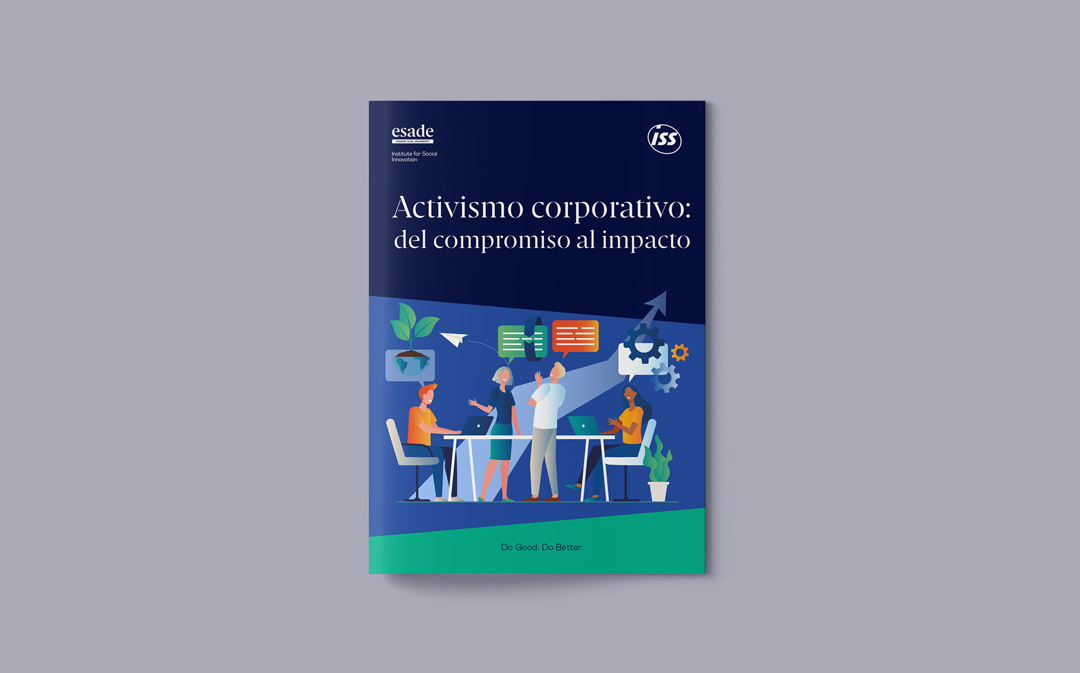Institute for Social Innovation
“Activismo corporativo: del compromiso al impacto”

You can now read a summary of the session “Activismo corporativo: del compromiso al impacto” – part of the Connecting through the Workplace series organized by the Esade Institute for Social Innovation and ISS Spain.
We find ourselves in an environment of increasing scrutiny and demands. Social, regulatory, and investor pressures on ethical corporate governance have increased, and the social and environmental impacts generated by company value chains are also under greater scrutiny. Concepts that are already part of today's business management language include corporate purpose, sustainability and ESG strategy, positive impact, climate emergency, equality and inclusion, decarbonization of business models, diversity and equity in decision-making governance bodies, and the regenerative economy.
However, some businesses resort to alarming greenwashing and purpose-washing tactics when addressing key issues. Corporate activism fights this trend and seeks a comprehensive approach to achieving social and environmental change through corporate action. What happens when business strategies include the advocacy of causes that are aligned with values? What challenges and opportunities do they encounter? How do they activate corporate purpose through actions that create shared value and positive impact without using opportunistic tactics? How is activism folded into governance? Can corporate activism exist without rethinking the business model?
In this session, three top-level speakers discussed the nature of corporate activism and how it is activated and organized. They explained how they address from within their organizations the social and environmental challenges facing society: Mario Rovirosa, CEO of Ferrer; Mónica Chao, director of sustainability at IKEA in Spain, and president of WAS (Women, Action, Sustainability); and Eulalia Devesa, director of corporate social responsibility at ISS Facility Services Spain. The session was moderated by Sonia Ruiz, an academic collaborator with Esade's Institute for Social Innovation.
Thanks to the support and collaboration of ISS Facility Services.
Continue reading this article online:
See online